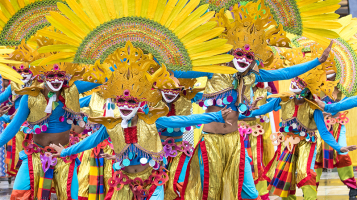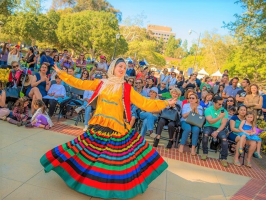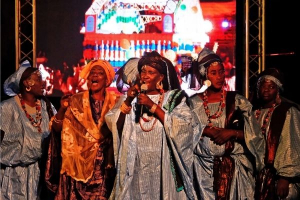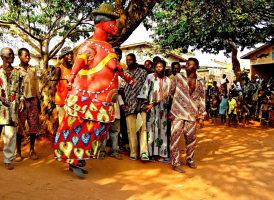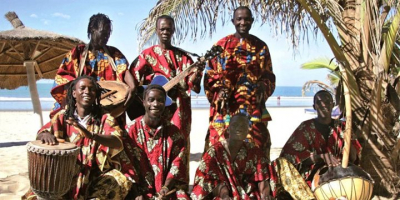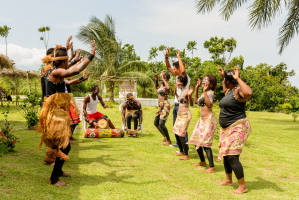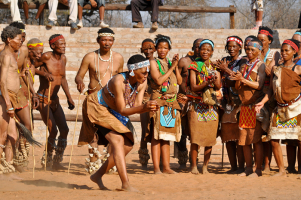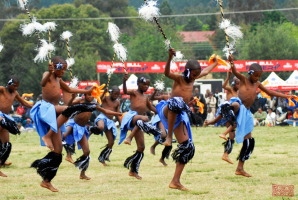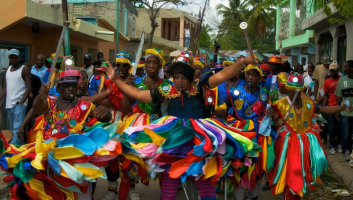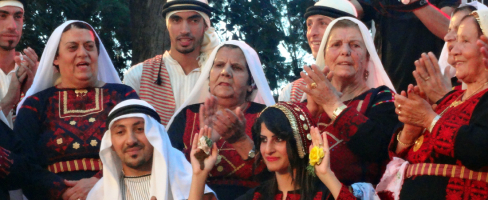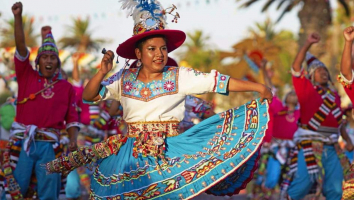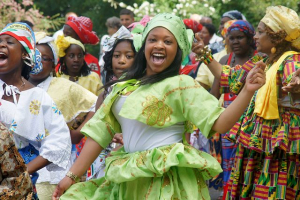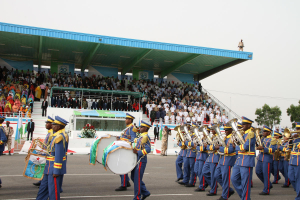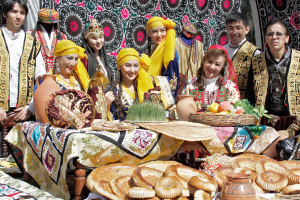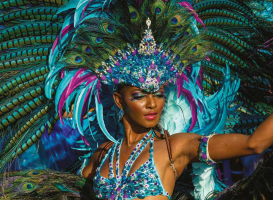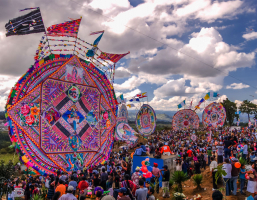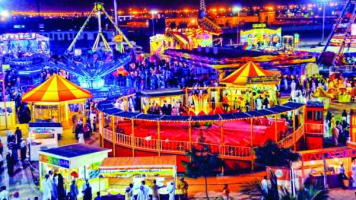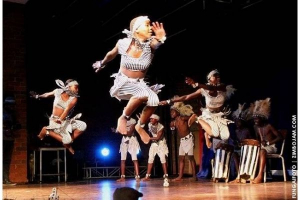Top 6 Most Famous Festivals in Eswatini
If your timetable allows, you should try to attend one of Eswatini's yearly celebrations, which include fascinating ceremonies and the wearing of traditional ... read more...colorful costumes. These events range from large-scale cultural festivals and athletic events to smaller arts and cultural gatherings organized by local groups. Here are the most famous festivals in Eswatini to look forward to.
-
Each year, Marula Festival begins in mid-February and lasts until mid-May, bringing with it a harvest of exotic green fruits known as 'marula.' Women and children harvest the green fruits as they fall to the ground and keep them until they mature to a creamy yellow color. After that, the fruits are placed in water, sugar is added, and the mixture is fermented before being distilled into beer. Marula beer, often known as buganu, is a strong alcoholic beverage.
Although the Marula Fruit may be found all throughout Africa, it is most popular in Eswatini. The Marula is considered by the Swazi people as much more than a food source; it is seen as a miraculous medicinal component with enormous reproductive potential. Each family presents the King and Queen-mother with Marula gifts as well as some Marula beer. Only after the royal family has had some of the beer is the rest of the country allowed to partake.
Time: from mid-February to mid-May
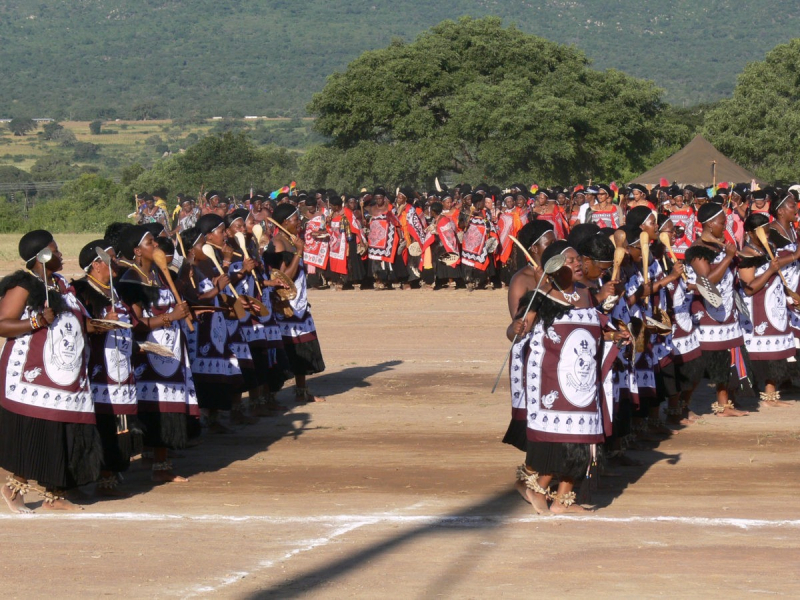
Source: thekingdomofeswatini -
Bushfire Music Festival, one of the most famous festivals in Eswatini, has some of Africa's top performers playing in a small, socially responsible setting. Bushfire Music Festival is Eswatini's internationally acclaimed music and arts festival that celebrates creative expression while promoting social responsibility, stimulating the economy, and attracting talent and tourists from across Africa and around the world. It was named one of CNN's "7 African music festivals you really have to see" and was recently named BBC's Top African Festival.
Every year, up to 20,000 people from over the world "bring their fire" to the magnificent Malkerns Valley to enjoy a diverse Pan-African and worldwide line-up of live music, drama, poetry, cinema, circus, dance, and visual arts. A bustling handicraft market, family-friendly concerts, and KidZone, as well as the Barn, a newly added interactive art and discussion area, combine to create a marvelously varied three-day entertainment experience.
MTN BUSHFIRE, which was founded in 2006, has a well-deserved reputation for its forward-thinking approach. The festival's goal is to promote social responsibility while advancing the arts. The festival gives back to the people of Eswatini by donating 100 percent of its profits to two Swazi charities: Young Heroes, a child sponsorship program assisting Swazi orphans, and Gone Rural boMake, a charity that assists rural Swazi women and communities with information and infrastructure development, addressing health, education, and social concerns.
Time: from 27 to 29 May
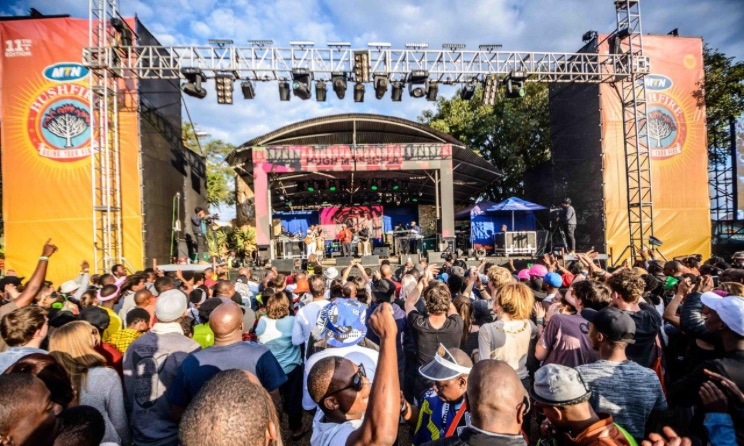
Source: musicinafrica -
Sibebe Survivor takes place every year in Mbuluzi, Eswatini, and includes a climb to the summit of Sibebe, the world's second-largest single granite monolith. The Sibebe Survivor climb, started by the Rotary Club of Mbabane-Mbuluzi in July 2004, takes participants from Mbuluzi High School to the summit of the rock and back. The number of climbers has grown year after year, reaching about 3,300 in 2011.
People from all over the world are encouraged to participate in the annual climb of Sibebe Rock, which takes place on the final Sunday of July every year. In 2012, an amputee used his wheelchair and crutches to complete the climb. The event raised more than 501 thousand Emalangeni (Swazi money) in 2011, which is almost 50,000 Euros. Participants must bring at least 1 liter of water with them, which will be provided at the start of the climb. The Rotary Club also organizes a pre-hike breakfast and awards diplomas and prizes to participants afterward.
Sibebe Survivor is a prominent social event in Eswatini, as well as a walk. Some events, such as parties at restaurants and clubs, are planned ahead of time. In 2011, for example, the event featured an African night at the Greans Restaurant, where African food was served and guests could participate in drumming. DJ Toxik spun upbeat dance music. A Sibebe Survivor Party with DJ Cybos at House on Fire was one among the numerous other parties held at clubs. Participation in the walk is encouraged through these warm-up events and Facebook adverts.
Time: the final Sunday of July
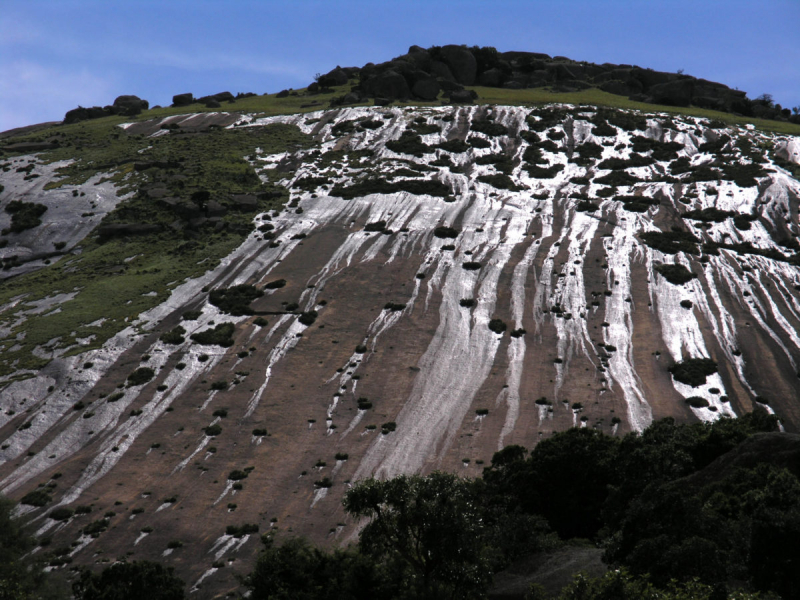
Source: thekingdomofeswatini 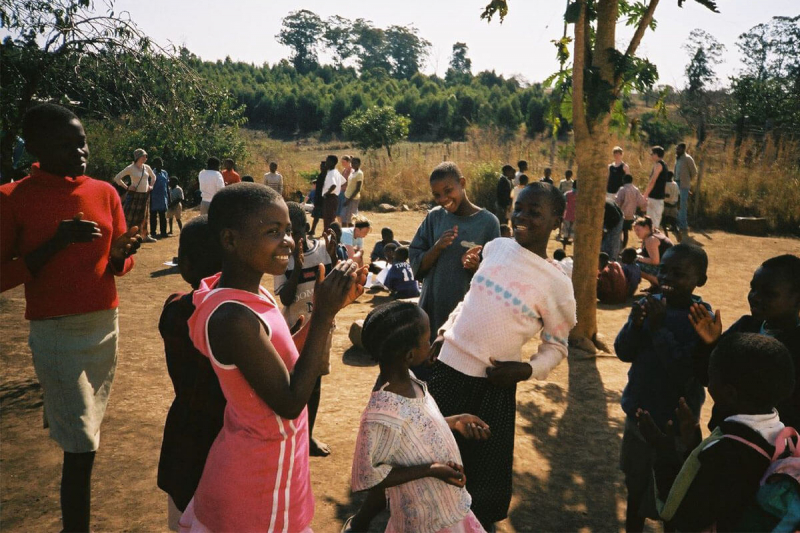
Source: charlies-travels -
Eswatini celebrates the Umhlanga, or Reed Dance, as a national holiday. This is the Kingdom's major cultural celebration. It lasts a week, with the major day, which is a public holiday, being the last day. The festival takes place in the last week of August or the first week of September every year. Because the dates are based on ancestral astrology, they are published quite close to the event. Monday is always the major day. We provide a projected date for future years on our calendar.
The Kingdom's unmarried and childless females converge at the royal home of the Queen Mother in Ludzidzini for this centuries-old event. The ceremony attracts up to 40,000 females dressed in traditional garb, including brilliant short beaded skirts with colorful sashes, making it one of Africa's largest and most stunning festivals. They go out in groups to the riverbanks (some march over 30 kilometers) and chop tall reeds with sharp knives before returning to the Royal Homestead. The young maidens, headed by the Swazi princesses, then present the Queen Mother with the newly cut reeds to defend her palace throughout the ritual. The tradition originated as a yearly job to repair the windbreaks (reed fences) around the royal home using reeds. After returning with the reeds, the ritual is celebrated with dancing and music. This begins on the 6th day's afternoon and continues on the 7th day, the major day when the King arrives and large crowds assemble to participate in the festivities.
Time: the last week of August or the first week of September
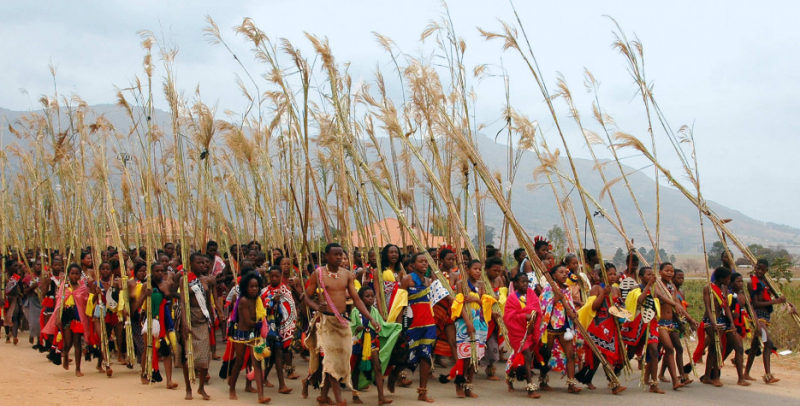
Source: officeholidays -
Simunye Fun Fair is a national event hosted at Simunye Country Club in Eswatini. Local and international performers have typically performed during the event. Each October, the three-day event is held every year and draws thousands of people from all over Eswatini and beyond. Games, rides, children's entertainment, beer tents, goat races, and circus acts are among the other events. A lineup of musicians performs, as well as snake-handling displays.
In addition to the activities on the site, Simunye Country Club and Lodge serves as a gateway to a range of nearby activities. Simunye Country Club & Lodge offers a comprehensive range of facilities in line with the Country Club lifestyle, in addition to all of the lodging alternatives. Enjoy excellent meals at our renowned restaurant while relaxing in our quietly beautiful ladies' bar overlooking the lovely pool. Simunye Club also has a well-equipped Conference Centre and an Executive Boardroom. More active visitors will appreciate the array of athletic activities available. Every year, Simunye Country Club hosts a number of exciting athletic events and contests, including the Swazi Warrior Fitness Challenge and a number of Golf Days.
Time: three days in October
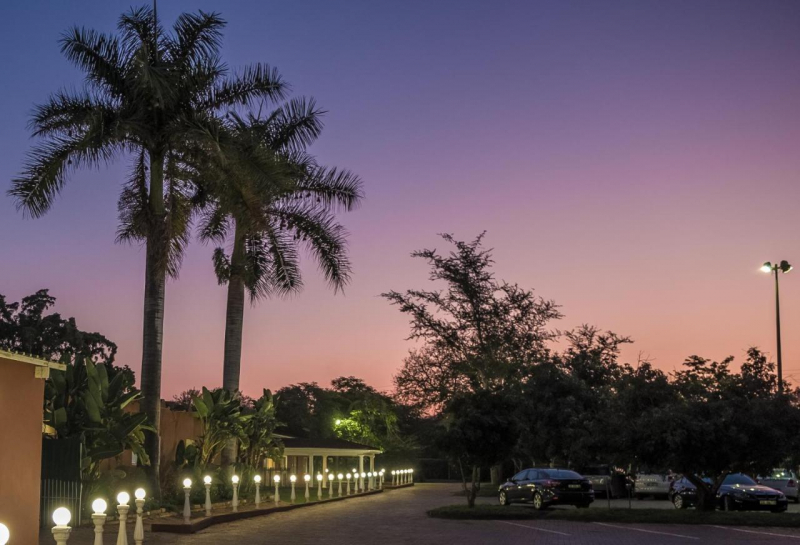
Source: booking.com 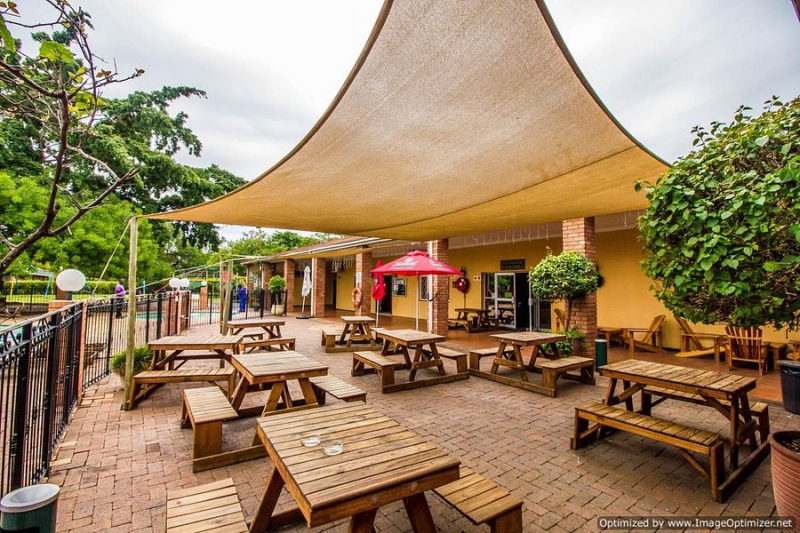
Source: tripadvisor -
Incwala Ceremony is one of the most famous festivals in Eswatini. It is an example of what was once a normal practice in many African countries, with a ritual that has lasted hundreds of years. Outsiders are usually unaware of its spiritual influence, and much of its inner workings are cloaked in secrecy. The sampling of the first of the season's harvest is simply one aspect of this protracted ceremony, which is commonly translated as the 'first fruits celebration.' Essentially, this is about purification and rejuvenation, as well as a celebration of royalty. Visitors with an interest in Eswatini culture are always welcome, even if it isn't a tourist event.
Every Swazi is welcome to participate in the Incwala's public areas. Spectators are permitted but not actively encouraged, and photography is prohibited unless special authorization is obtained. The ideal day to go is Day Four of the Big Incwala, when the eating and dancing reach a peak and thousands of people crowd the royal parade grounds, including warriors in full combat gear. The songs, dances, and rituals performed within the royal kraal are kept in strict confidence and may not be recorded or written down. Around the latter week of December/first week of January, the event takes place. Because the dates are based on ancestral astrology, they are published quite close to the event.
Time: between the end of December and the beginning of February
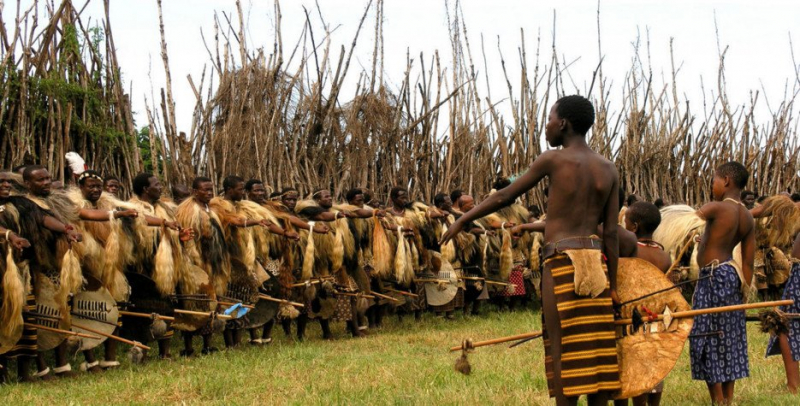
Source: officeholidays 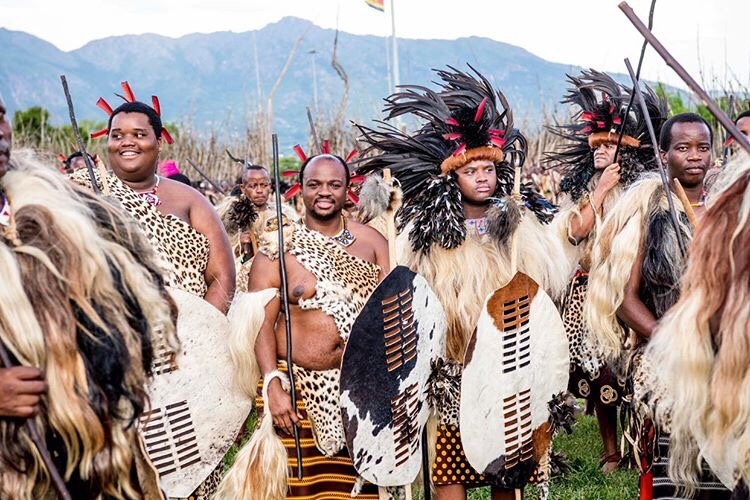
Source: theafricanroyalfamilies








